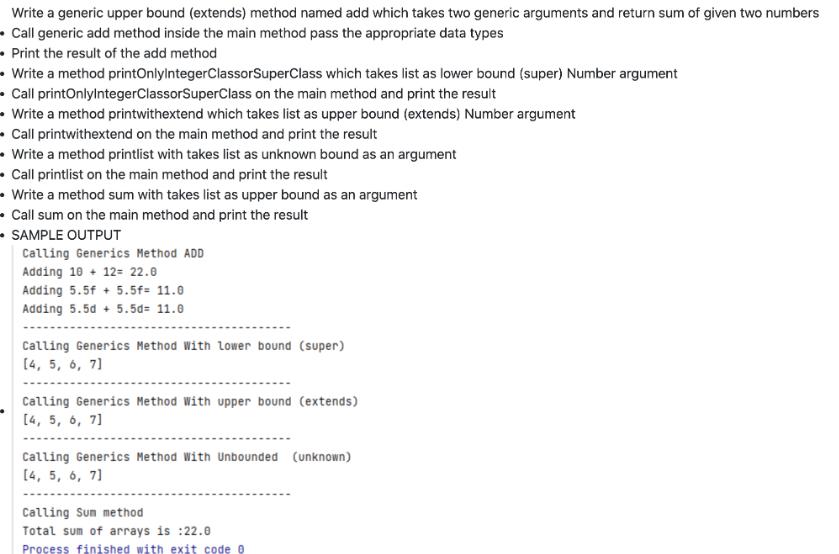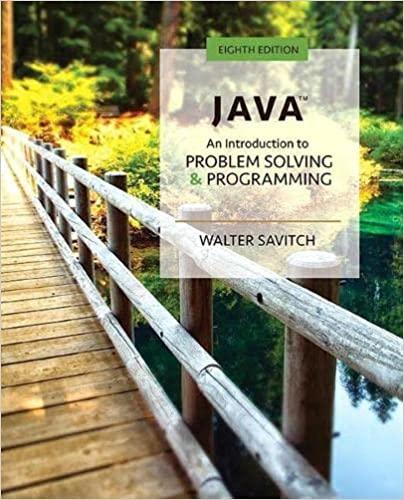Answered step by step
Verified Expert Solution
Question
1 Approved Answer
Write a generic upper bound (extends) method named add which takes two generic arguments and return sum of given two numbers Call generic add

Write a generic upper bound (extends) method named add which takes two generic arguments and return sum of given two numbers Call generic add method inside the main method pass the appropriate data types Print the result of the add method Write a method printOnlyIntegerClassorSuperClass which takes list as lower bound (super) Number argument Call printOnlyIntegerClassorSuperClass on the main method and print the result Write a method printwithextend which takes list as upper bound (extends) Number argument Call printwithextend on the main method and print the result Write a method printlist with takes list as unknown bound as an argument Call printlist on the main method and print the result Write a method sum with takes list as upper bound as an argument Call sum on the main method and print the result SAMPLE OUTPUT Calling Generics Method ADD Adding 10+12= 22.0 Adding 5.5f + 5.5f= 11.0 Adding 5.5d + 5.5d= 11.0 Calling Generics Method With lower bound (super) [4, 5, 6, 7] Calling Generics Method With upper bound (extends) [4, 5, 6, 7] Calling Generics Method With Unbounded (unknown) [4, 5, 6, 7] Calling Sum method Total sum of arrays is :22.0 Process finished with exit code 0
Step by Step Solution
★★★★★
3.45 Rating (148 Votes )
There are 3 Steps involved in it
Step: 1
Java code that implements the functionalities youve described import javautilArrayList import javautilList public class GenericMethods public static T ...
Get Instant Access to Expert-Tailored Solutions
See step-by-step solutions with expert insights and AI powered tools for academic success
Step: 2

Step: 3

Ace Your Homework with AI
Get the answers you need in no time with our AI-driven, step-by-step assistance
Get Started


